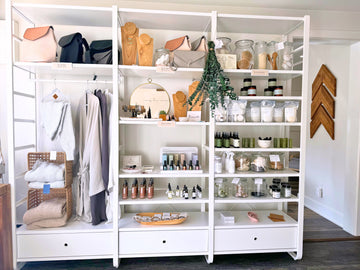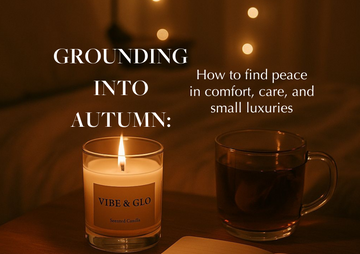Take a moment and think about what your typical day looks like. Imagine waking up and how you feel as you yawn, stretch, and get out of bed. What’s next?
Many of us are rooted in a general routine. We often look at the day through the lens of what needs to be accomplished, such as going to work and/or school, taking care of kids, doing homework, preparing and eating meals, and anything else that applies to what is required to be completed throughout the day. That being said, most routines are people built based on obligations which create arbitrary timeframes of what activities can and cannot be done throughout the morning, afternoon, and evening. Challenge yourself to consider the day as a whole 24 hours, how do you spend it?
What makes your ideal day?
Determining what makes your ideal day is the first step in breaking through to what brings you joy, your goals, and creating the person you want to be. An "ideal day" is our way of recognizing the individualized activities and interests that you want to have as a part of your lifestyle and taking the next steps to make your "ideal" a daily practice. This can range from having long-term goals such as maintaining optimal physical health or specific goals, such as, reading more frequently for pleasure or to incorporate dry brushing into your self-care routine. Discovering what we consider "ideal" opens our minds to more possibilities of what can be accomplished in 24 hours, that does not revolve around what we feel is required from us. Now, we understand that it’s unrealistic to live your ideal life every day but there are ways to incorporate practices that represent your version of the ideal.
Each day we are confronted with choices; What am I going to eat for breakfast? Will I exercise? What show am I going to watch? Do I need to run errands? All of these seemingly small decisions make up how we live our life. When we reflect on the choices we make throughout the day, it enlightens our perspective on their impact and brings clarity to things we can change.
Developing better habits for wellness
In a study done by Charles Duhiggs, he determined that adults who develop better habits, develop a deeper sense of reward for that behaviour. The reward system in our brain leads to increased endorphins and an overall sense of well-being. He developed a system to aid individuals in their journey to a more ideal day that includes understanding the cue-routine-reward cycle.
-
Take your ideal day and identify the specific changes you can make. Start with one behaviour at a time.
-
Identify your cue for the behaviour you want to form into a habit. For example, if your ideal day includes doing yoga, your cue might be waking up or getting home from work.
-
Start working on this habit every day.
-
Take one minute every day to recognize the reward you're getting from this new habit. For example, if you do yoga, you'll probably experience increased flexibility and an increased sense of self. Allow yourself to anticipate these rewards every day.
-
Once this habit has become ingrained, move on to the next.

Wellness is a lifestyle that consists of decisions that evoke change.
Whether it’s a small change like drinking enough water throughout the day or a big change to switch career paths that follow your aspirations. Nevertheless, positive changes provide you with feelings of joy and a "big picture" mentality to support your optimal health, physically and mentally.
At Thrive Urban Wellness in Newmarket, our mission is to help the community find ways to align the every day with their ideal day. Deciding to redefine your sense of self and choosing what you want out of life to be a priority is the beginning of the journey to discovering your ideal day.
The services and products offered at Thrive Urban Wellness have been curated to aid your wellness journey, for more information visit our therapies and wellness boutique.







